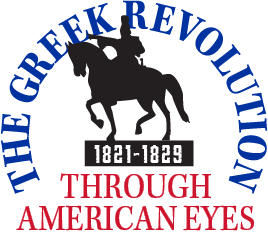IV. The “Greek Question” As An Issue of U.S. Foreign Policy
C7. Extract from the Presidential Message of John Quincy Adams Twentieth Congress, First Session
(Robinson, p. 126.) December 4, 1827
... From the interest taken by this sovereign [the Emperor Nicholas of Russia] in behalf of the suffering Greeks, and from the spirit with which others of the great European Powers are cooperating with him, the friends of freedom and humanity may indulge the hope, that they will obtain relief from that most unequal of conflicts, which they have so long and so gallantly sustained; that they will enjoy the blessing of self-government, which by their sufferings in the cause of liberty they have richly earned; and that their independence will be secured by those liberal institutions, of which their country furnished the earliest examples in the history of mankind, and which have consecrated to immortal remembrance the very soil for which they are now again profusely pouring forth their blood. The sympathies which the people and the Government of the United States have so warmly indulged with their cause, have been acknowledged by their government, in a letter of thanks, which I have received from their illustrious President, a translation of which is now communicated to Congress, the Representatives of that nation to whom this tribute of gratitude was intended to be paid, and to whom it was justly due.
(Hatzidimitriou 284)
Source: Constantine G. Hatzidimitriou, Founded on Freedom and Virtue: Documents Illustrating the Impact in the United States of the Greek War of Independence, 1821-1829 (New Rochelle, New York: Aristide D. Caratzas, 2002).
